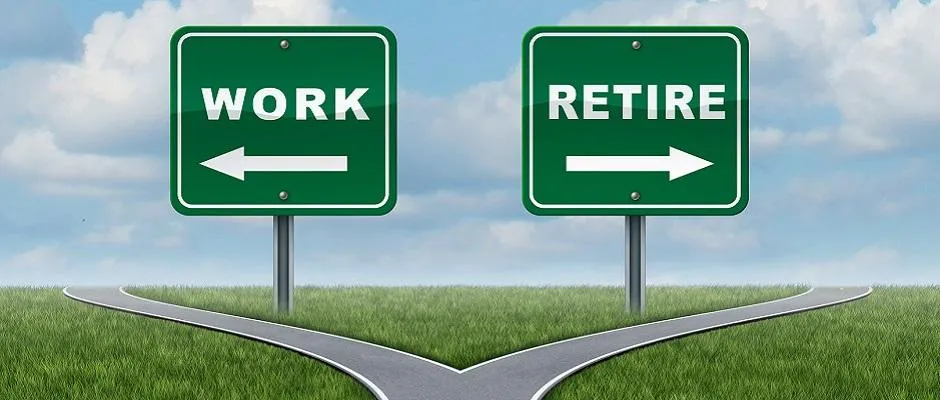
It's Never Too Early to Plan for Your Retirement
A secure, comfortable retirement is every person’s dream. Since we're living longer, healthier lives, we can expect to spend more time in retirement than our parents and grandparents did. Achieving the dream of a secure, comfortable retirement is much easier when you plan your finances accordingly.
Social Security Retirement Planner can help you now
A good place to start thinking about planning for your retirement is with the Social Security Planner. Here you can find tools and guides to help you think through this phase of your life. It also points out things you may want to consider as you prepare for the future.
If you are looking for information, you can:
Use the Retirement Estimator and the other benefit calculators to test different retirement ages or future earnings amounts
Learn about Social Security programs
Find out what happens if you work after you retire or if you are already a Medicare Beneficiary
Learn how certain types of earnings and pensions can affect your benefits
Already near retirement age, you can:
Get Information about how members of your family may qualify for benefits
Find instructions on how to apply for benefits and what supporting documents you may need to furnish
Close to age 65, you can find out how to apply for just Medicare. You may need to sign up for Medicare close to your 65th birthday, even if you will not be retired by that time.
Some health insurance plans change automatically at age 65.
If you are getting Social Security benefits when you turn 65, your Medicare Part A (Hospital) benefits will start automatically.
With retirement around the corner now is the time to plan for your financial needs
Your Social Security benefits are the foundation on which you can build a secure retirement. The three major elements of your retirement portfolio are:
Benefits from pensions
Savings and investments, and
Social Security Benefits
Most financial advisors say you'll need about 70% of your pre-retirement earnings to comfortably maintain your pre-retirement standard of living. If you have average earnings, your Social Security retirement benefits will replace only about 40%. The percentage is lower for people in the upper income brackets and higher for people with low incomes. You'll need to supplement your benefits with a pension, savings or investments.
Factors that may affect your retirement benefits
Your benefit amount is based on your earnings averaged over most of your working career. Higher lifetime earnings result in higher benefits. If you have some years of no earnings or low earnings, your benefit amount may be lower than if you had worked steadily.
Your benefit amount also is affected by your age at the time you start receiving benefits. If you start your retirement benefits at age 62 (the earliest possible retirement age) your benefit will be lower than if you wait until your full retirement age. If you start your retirement benefits after full retirement age, the monthly benefit may be higher due to delayed retirement credits.
If you are self-employed
Self-employed people must report their earnings and pay the taxes directly to the IRS. You are self-employed if you operate a trade, business or profession, either by yourself or as a partner.
You report your earnings for Social Security when you file your federal income tax return. If your net earnings are $400 or more in a year, you must report your earnings on IRS Schedule SE for Social Security purposes, in addition to the other tax forms you must file.
If you work for a federal, state or local government
If you work for a federal, state or local government where you do not pay Social Security taxes, the pension you receive from that agency may reduce any Social Security benefits for which you are qualified. There are two factors that may reduce your benefits.
The first factor affects the way your Social Security retirement or disability benefits are figured. The Windfall Elimination Provision fact sheet provides answers to questions you may have about this provision.
The second factor affects Social Security benefits you receive as a spouse or widow/widower. The Government Pension Offset fact sheet provides answers to questions you may have about this provision.
If you are already receiving disability or survivors benefits when you apply for retirement
If you are receiving disability benefits when you reach full retirement age, nothing will change, except that your benefits will be called retirement benefits instead of disability benefits. If you are receiving survivor's benefits and you also are eligible for your own higher retirement benefits, you can switch from survivors to retirement benefits as early as age 62 or as late as age 70. In many cases, widows/widowers begin receiving one benefit at a reduced rate and switch to the other benefit at an unreduced rate at full retirement age. However, if you switch, you will be paid only the higher of the two benefits, not both.

DOWNLOAD OUR:
"UNDERSTANDING ANNUITIES" FREE GUIDE
We’ve created a simple guide to help you understand how annuities work, so you can confidently choose the right option for your retirement future!
Questions? Give Us A Call At:

It's Never Too Early to Plan for Your Retirement
A secure, comfortable retirement is every person’s dream. Since we're living longer, healthier lives, we can expect to spend more time in retirement than our parents and grandparents did. Achieving the dream of a secure, comfortable retirement is much easier when you plan your finances accordingly.
Social Security Retirement Planner can help you now
A good place to start thinking about planning for your retirement is with the Social Security Planner. Here you can find tools and guides to help you think through this phase of your life. It also points out things you may want to consider as you prepare for the future.
If you are looking for information, you can:
Use the Retirement Estimator and the other benefit calculators to test different retirement ages or future earnings amounts
Learn about Social Security programs
Find out what happens if you work after you retire or if you are already a Medicare Beneficiary
Learn how certain types of earnings and pensions can affect your benefits
Already near retirement age, you can:
Get Information about how members of your family may qualify for benefits
Find instructions on how to apply for benefits and what supporting documents you may need to furnish
Close to age 65, you can find out how to apply for just Medicare. You may need to sign up for Medicare close to your 65th birthday, even if you will not be retired by that time.
Some health insurance plans change automatically at age 65.
If you are getting Social Security benefits when you turn 65, your Medicare Part A (Hospital) benefits will start automatically.
With retirement around the corner now is the time to plan for your financial needs
Your Social Security benefits are the foundation on which you can build a secure retirement. The three major elements of your retirement portfolio are:
Benefits from pensions
Savings and investments, and
Social Security Benefits
Most financial advisors say you'll need about 70% of your pre-retirement earnings to comfortably maintain your pre-retirement standard of living. If you have average earnings, your Social Security retirement benefits will replace only about 40%. The percentage is lower for people in the upper income brackets and higher for people with low incomes. You'll need to supplement your benefits with a pension, savings or investments.
Factors that may affect your retirement benefits
Your benefit amount is based on your earnings averaged over most of your working career. Higher lifetime earnings result in higher benefits. If you have some years of no earnings or low earnings, your benefit amount may be lower than if you had worked steadily.
Your benefit amount also is affected by your age at the time you start receiving benefits. If you start your retirement benefits at age 62 (the earliest possible retirement age) your benefit will be lower than if you wait until your full retirement age. If you start your retirement benefits after full retirement age, the monthly benefit may be higher due to delayed retirement credits.
If you are self-employed
Self-employed people must report their earnings and pay the taxes directly to the IRS. You are self-employed if you operate a trade, business or profession, either by yourself or as a partner.
You report your earnings for Social Security when you file your federal income tax return. If your net earnings are $400 or more in a year, you must report your earnings on IRS Schedule SE for Social Security purposes, in addition to the other tax forms you must file.
If you work for a federal, state or local government
If you work for a federal, state or local government where you do not pay Social Security taxes, the pension you receive from that agency may reduce any Social Security benefits for which you are qualified. There are two factors that may reduce your benefits.
The first factor affects the way your Social Security retirement or disability benefits are figured. The Windfall Elimination Provision fact sheet provides answers to questions you may have about this provision.
The second factor affects Social Security benefits you receive as a spouse or widow/widower. The Government Pension Offset fact sheet provides answers to questions you may have about this provision.
If you are already receiving disability or survivors benefits when you apply for retirement
If you are receiving disability benefits when you reach full retirement age, nothing will change, except that your benefits will be called retirement benefits instead of disability benefits. If you are receiving survivor's benefits and you also are eligible for your own higher retirement benefits, you can switch from survivors to retirement benefits as early as age 62 or as late as age 70. In many cases, widows/widowers begin receiving one benefit at a reduced rate and switch to the other benefit at an unreduced rate at full retirement age. However, if you switch, you will be paid only the higher of the two benefits, not both.







